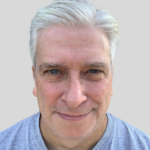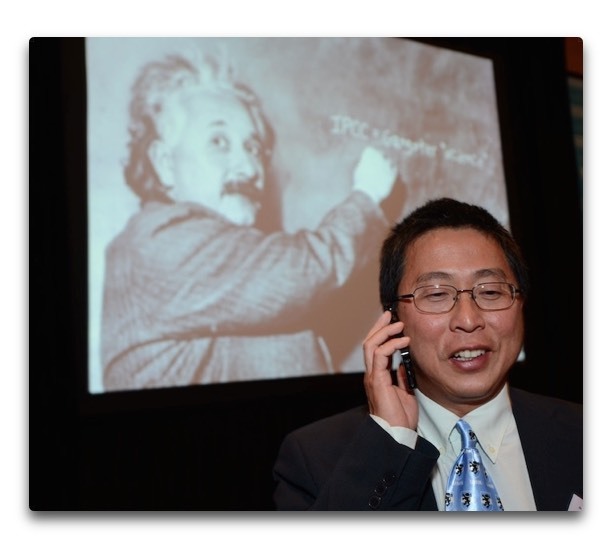In Februrary 2015, the Boston Globe, New York Times, and Washington Post ran stories repeating claims made by long-time Greenpeace staffer Kert Davies that Dr. Wei-Hock “Willie” Soon of the Harvard-Smithsonian Center for Astrophysics failed to disclose funding from “fossil-fuel sources” to the editors of a science journal that published an article coauthored by Dr. Soon. Davies alleged this violated the journal’s disclosure and conflict of interest requirements.
Since then, many other media outlets have covered the controversy.
This news coverage was the beginning of a witch hunt waged against climate scientists whose work contradicts the claims of Greenpeace and other liberal advocacy groups. Elements of the witch hunt include:
* Forecast the Facts, a project of the left-of-center Center for American Progress (and more recently affiliated with the even farther-left Citizen Engagement Laboratory) launched an online petition to the Smithsonian Institution demanding Dr. Soon be fired for misconduct.
* Democratic U.S. Sens. Edward Markey, Barbara Boxer, and Sheldon Whitehouse sent letters to 100 business and think tanks – including The Heartland Institute – demanding they divulge any funding they have provided to global warming skeptics.
* Democratic U.S. Rep. Raúl M. Grijalva sent letters to seven universities demanding information about funding for eight scientists who have questioned Greenpeace’s stance on global warming.
* Davies asked the editors of journals that published Soon’s work to investigate whether he had complied with their disclosure and conflict of interest policies.
The Heartland Institute, which has been part of the climate change debate since 1993, has created a web page atwww.heartland.org/willie-soon that collects commentary and background information on this controversy. The web page contains information contradicting Davies’ allegations while making the following points:
* Neither the editors of Science Bulletin nor the Smithsonian Institution, Dr. Soon’s employer, have said Dr. Soon violated their disclosure or conflict of interest rules.
* Davies has been making similar attacks against Dr. Soon and other climate scientists since as long ago as 1997. He is not a credible source. His background and affiliations should have been included in news stories based on his latest allegations.
* Grants supporting Dr. Soon’s work were vetted and submitted by the Smithsonian, not by Dr. Soon. Grant dollars went to the Smithsonian, which kept around 40 percent of the money for oversight and overhead.
* The amount of industry support Dr. Soon received, variously reported as $1 million or $1.2 million, includes the Smithsonian Institution’s 40 percent share and was received over the course of ten years.
* By agreement between donors and the Smithsonian, Dr. Soon wasn’t even aware of who some of the donors were, making a conflict of interest impossible.
* Disclosure of funding sources is not a common requirement of academic journals in the physical sciences field. Most climate scientists – alarmist as well as skeptical – do not disclose their funding sources.
Joseph Bast, president of The Heartland Institute, said:
“The Heartland Institute stands four-square behind Willie Soon. He’s a brilliant and courageous scientist devoted entirely to pursuing scientific knowledge. His critics are all ethically challenged and mental midgets by comparison. We plan to continue to work with Dr. Soon on future editions of Climate Change Reconsidered and feature him at future International Conferences on Climate Change, including the next one, the tenth, scheduled to take place in June in Washington, DC.”
John Nothdurft, director of government relations for The Heartland Institute, said:
“Instead of having a real conversation with the American public about the science and economics of climate change, well-financed advocacy groups and politicians with many ‘conflicts of interest’ of their own would rather direct the public’s focus on who funds non-profit organizations, independent research institutions, scientists, economists, and other experts.
“Apparently it is now a national offense to raise any concerns over certain aspects of the science or economics of policies that purport to deal with human-caused climate change. This witch hunt has nothing to do with ensuring that science is accurate or reliable. These attacks are leveled by people who refuse to engage in civil debate over important matters of science, economics, and public policy. They should not be allowed to win the day.”
Heartland has worked closely with Dr. Soon over the years, featuring him as a speaker at conferences and including him as a reviewer and contributor to a series of volumes on climate science published for the Nongovernmental International Panel on Climate Change (NIPCC). In 2013, Heartland published a critique coauthored by Dr. Soon of a report of the United Nations’ Intergovernmental Panel on Climate Change (IPCC).





